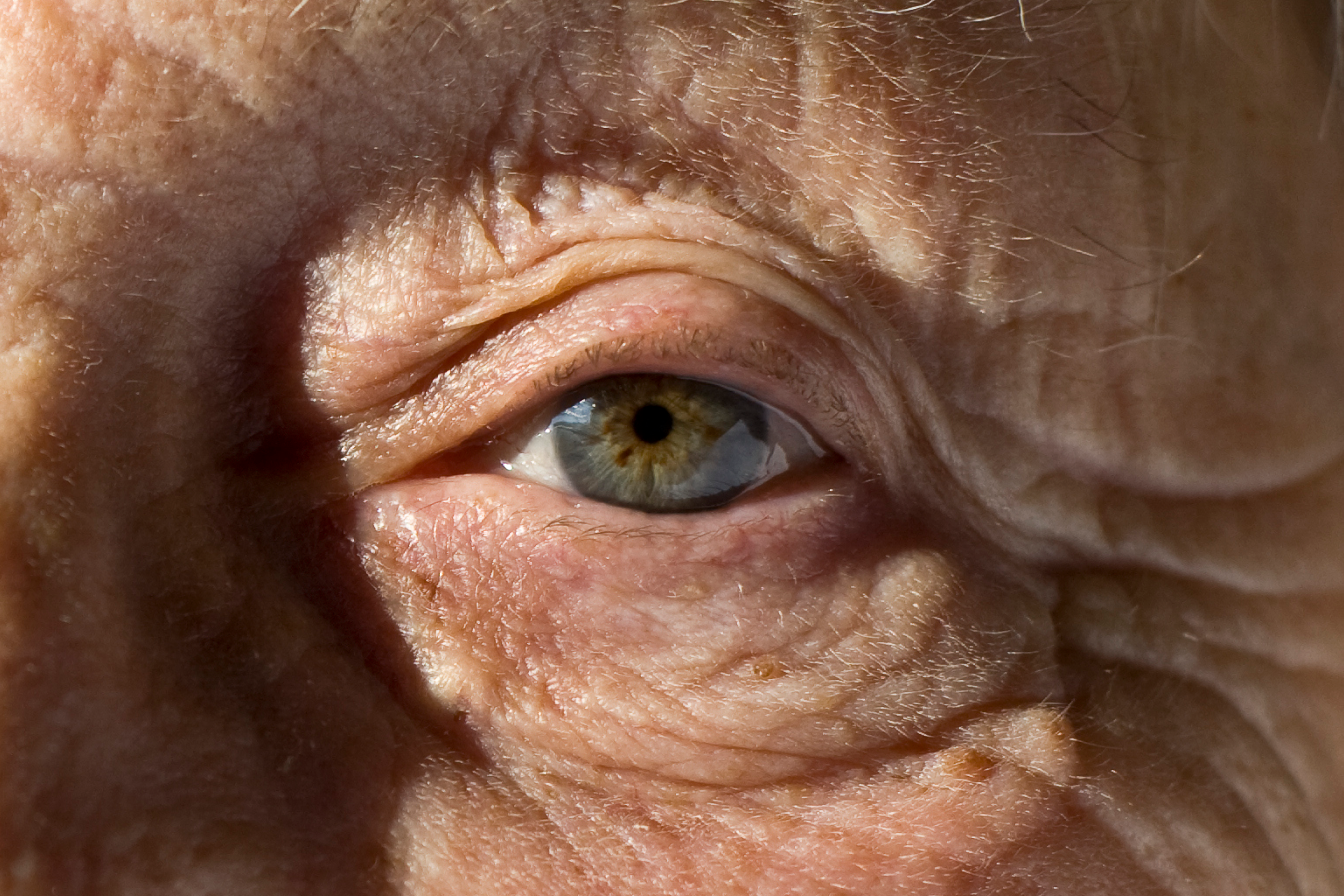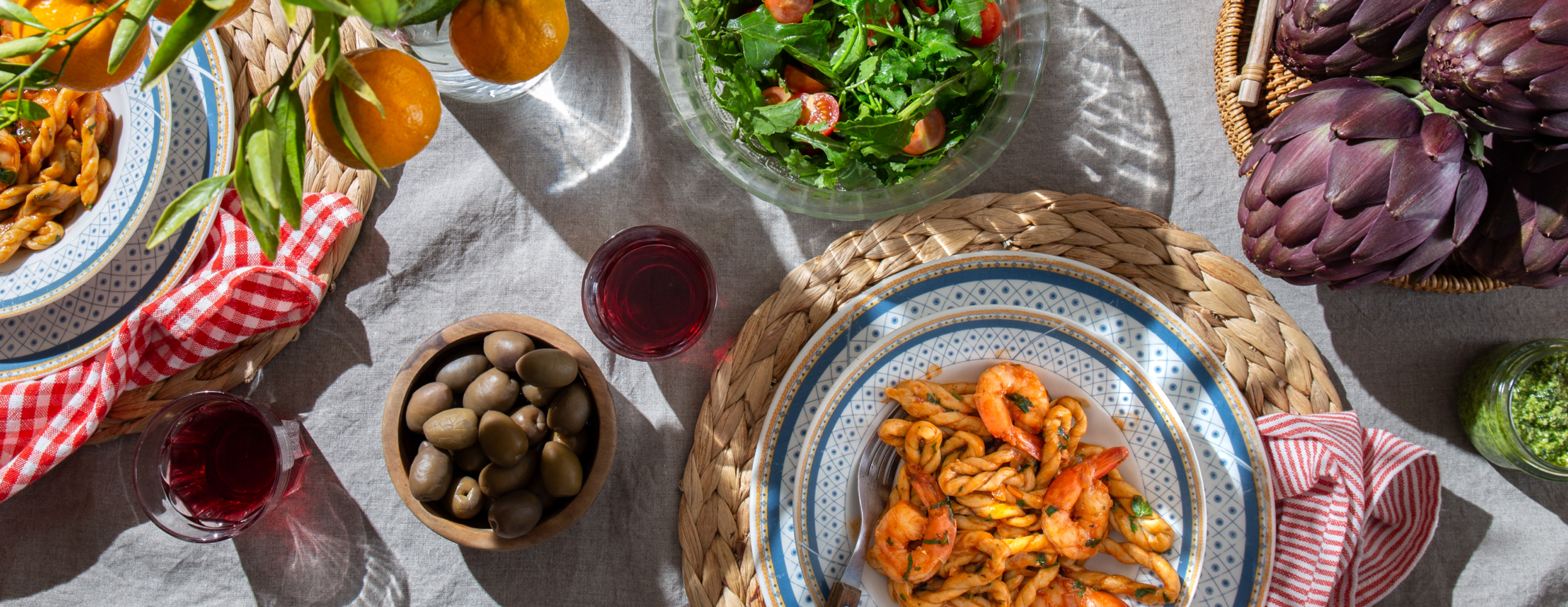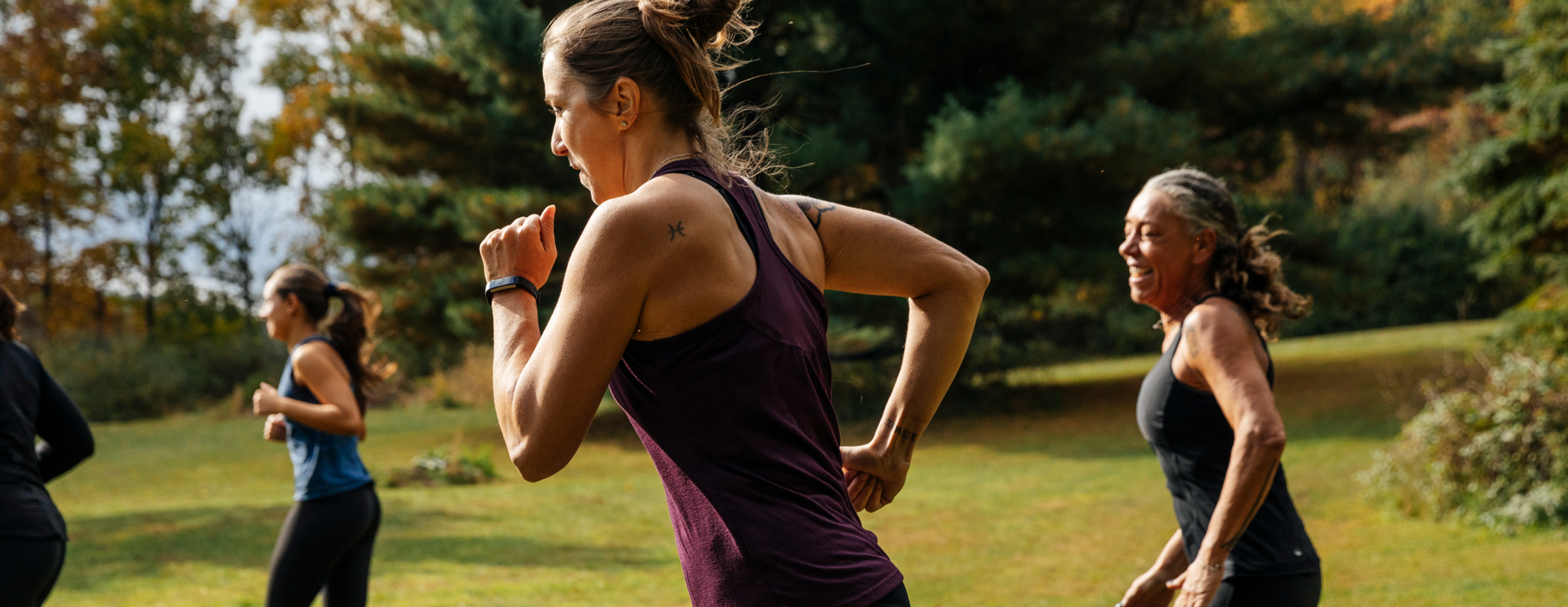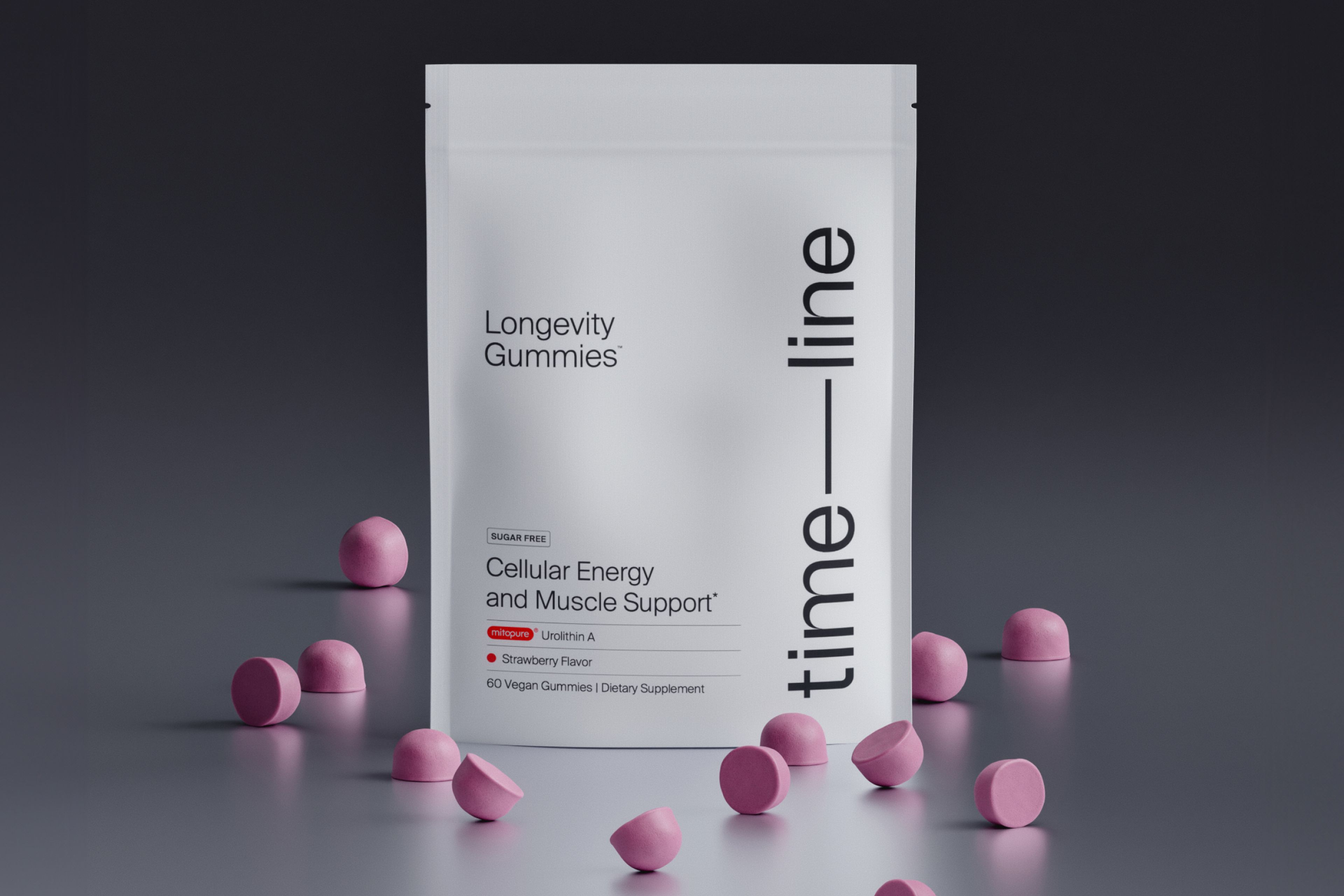The Ultimate Guide to Healthy Aging
No matter how old you are, it’s never too late to focus on healthy aging. Learn how to increase your health span with these evidence-based tips.

What does healthy aging mean to you? For some, it means keeping the mind sharp and chronic disease at bay. For others, it means being able to stay physically fit to continue doing the activities they love. Some people focus on aesthetics and want to know how to keep your skin healthy as you age. Regardless of what healthy aging means to you, most of us want to be able to live independently and healthy, well into our golden years.
You may be wondering - is healthy aging possible? And the answer is yes! No matter how old you are and what your current level of health is, making positive changes now can add years to your life.
If you are interested in healthy aging and longevity, this article is for you. We’ve created this guide to healthy aging to teach you everything you need to know about natural anti-aging
What is healthy aging?
Just what is healthy aging? And why is healthy aging important?
Healthy aging is a lifelong process of taking care of your health, yet most of us don’t pay much attention to it until we reach the second half of our lives.
Healthy aging does more than just add years to our lives. The aging population is growing rapidly. Census data shows that the 65 and older group grew by over a third in the 2010 decade and continues to become a significant portion of the worldwide population.[1] The healthcare cost associated with aging continues to rise as well. According to the Centers for Medicare and Medicaid Services (CMS) “National health spending will climb to 19.4% of gross domestic product in 2027, reaching $6 trillion, according to annual CMS estimates, with growth continued to be boosted by a graying population aging into Medicare.[2]”
By focusing on healthy aging at the population level, we can hopefully blunt these rising costs and help people to live independently longer, and with better health.
How to stay healthy while aging
While genetics play a part in the aging process, you can’t ignore the role of nutrition and lifestyle in how we age. The following 8 science-backed tips are a great place to start focusing on increasing your lifespan.

Eat a healthy diet - What to eat for good health is perhaps one of the most hotly debated topics right now. From low-carb enthusiasts to plant-based proponents, and just about everything in between, it seems that everyone has an opinion on healthy aging and nutrition.
Researchers want to know if healthy eating can reverse aging, and many studies point to the Mediterranean diet as being the diet to promote longevity.[3] Other styles of eating may be beneficial as well. What we know for sure is that a minimally processed whole food diet is much healthier than one that includes highly processed foods full of added sugars, and sodium, and devoid of fiber and nutrients.

Move more, sit less - It is well established that regular physical exercise has a positive benefit on health. Even starting activity in midlife will help to improve one’s health in later years.[4]
The Physical Activity Guidelines for Americans, recommend that adults get 150 minutes of moderate-intensity activity a week combined with two days of muscle-strengthening activity each week.[5] While some physical activity is better than none, more activity may offer additional benefits.[6]
Endurance exercise and high-intensity training are great to strengthen the cardiorespiratory system, while strength training keeps muscles strong. Both of these types of exercise should be included in any healthy aging regimen.

Mind your mind - As people age, keeping the mind sharp tends to be a large concern. From forgetful “senior moments” to fears of more severe conditions such as Alzheimer's disease and dementia, taking care of your mind is just as important as taking care of your body. In addition to eating a healthy diet and exercising regularly, experts recommend that you keep your mind in shape by starting new hobbies, doing crossword puzzles, learning new languages, and reading.[7] Staying socially active and meditating are other great ways to keep the mind healthy.

Get your zzz’s - Late nights and early mornings have become such a way of life in the US that it is easy to underestimate the importance of getting regular good quality sleep. As we age, getting enough sleep can become even more challenging, as it’s common for older adults to suffer from insomnia or have other disorders that may impact their sleep.
Setting a sleep schedule, avoiding technology and blue light before bed, and limiting caffeine and alcohol later in the day can also help. It’s important to talk about sleep with your doctor to rule out any underlying diseases that may be getting in the way of sleep.

Take care of your joints - 1 in 4 adults has been diagnosed with arthritis,[8] and this painful joint disease can severely limit your ability to stay active. It’s important to know how to keep your joints healthy as you age, to prevent this debilitating condition. Experts agree that keeping a getting regular physical activity, following a healthy anti-inflammatory diet, and maintaining a healthy weight are the best ways to keep your joints healthy.[9]

Limit drinking and smoking - Most of us know by now that smoking is not good for your health, but overconsuming alcohol can be problematic as well. It is associated with an increased risk of high blood pressure and some types of cancers and the risk of car crashes and violence are also associated with increased drinking.
The Dietary Guidelines for Americans recommend that you limit drinking to no more than 2 drinks a day for men and 1 for women.[10]

Visit your doctor frequently - Regularly visiting your healthcare provider can help you to stay up to date on screenings and immunizations. Conditions like pre-diabetes and high cholesterol can be reversed through lifestyle change when caught early. And an early cancer diagnosis from a routine mammogram or colonoscopy can make all the difference in successful treatment.

Take care of your mitochondria - Most of us don’t think about how to keep our mitochondria healthy, but at Timeline Nutrition we are trying to change that. Mitochondrial dysfunction is now being recognized as a significant player in the aging process and the development of chronic diseases. In addition to getting regular exercise and eating a healthy diet, supporting mitochondrial health with targeted supplementation like Mitopure may help to keep muscles strong and improve our health at the cellular level.
Healthy aging and nutrition
Many people question what foods slow down aging, and can food reverse aging? Researchers are trying to find the answer.

A recent study identified the following foods as being part of an optimal diet for longevity:[11]
- Whole grains
- Legumes
- Fish
- Veggies and fruit
- Nuts
In this significant trial, the researchers discovered that switching from a typical Western diet high in saturated fats, red and processed meats, sugar-sweetened beverages and refined grains to a diet that includes the optimal longevity foods could add years to your life. For example, if a 20-year-old switched to this style of eating they could add over a decade to their life expectancy. If a 60-year-old made these changes they could expect their life expectancy to increase by about 8-9 years. Even at age 80, switching to this style of eating would add about 3.5 years to your life![12]
Clearly, diet is a key component of how we age, and this research suggests that it’s never too late to start making improvements to how you eat.
Natural anti-aging
Targeted supplementation may offer additional natural anti-aging support. Here we’ll dive into some of the best vitamins for anti-aging.
- Urolithin A | Mitopure - supporting mitochondrial health is key to prolonging lifespan. Urolithin A, which our gut microbiome makes from precursors molecules in pomegranates, berries, and nuts optimizes a process called mitophagy and may increase muscular strength and endurance.[13]
- Omega-3 fatty acids - in the United States most people do not consume enough of these anti-inflammatory fats in their diet. Omega-3’s play a role in heart health, and brain health, and low levels of these types of fats are associated with increased levels of mortality.[14]
- Vitamin D - 70% of Americans don’t have adequate levels of vitamin D, and low levels are associated with a number of age-related conditions such as heart disease, diabetes, cancer, and all-cause mortality.[15]
- Magnesium - A deficiency in this mineral has been associated with an increased risk of cancer, heart disease, stroke, poor DNA repair, and all-cause mortality. Almost half of the US population is deficient in magnesium so using a supplement may be able to help you achieve adequate levels.
Be sure to talk to your healthcare provider before starting any new supplements.
Last words
Healthy aging is something we should all care about. While the role of nutrition and lifestyle in healthy aging must be addressed, people are starting to focus on how to keep your cells healthy as you age.
While aging is inevitable, there is a lot you can do to slow the process and take care of your health.
Authors

Written by
Senior Manager of Nutrition Affairs
References
- ↑
U.S. Census Bureau UC. 65 and Older Population Grows Rapidly as Baby Boomers Age. Census.gov. Published June 25, 2020. Accessed May 23, 2022. https://www.census.gov/newsroom/press-releases/2020/65-older-population-grows.html (https://www.zotero.org/google-docs/?WVMdrf)
- ↑
Aging Population Continuing to Drive National Health Spending, Report Says. AJMC. Published February 20, 2019. Accessed May 23, 2022. https://www.ajmc.com/view/aging-population-continuing-to-drive-national-health-spending-report-says (https://www.zotero.org/google-docs/?WVMdrf)
- ↑
Trichopoulou A, Benetou V. Impact of Mediterranean Diet on Longevity. In: Caruso C, ed. Centenarians: An Example of Positive Biology. Springer International Publishing; 2019:161-168. doi:10.1007/978-3-030-20762-5_10 (https://www.zotero.org/google-docs/?WVMdrf)
- ↑
Michel JP, Dreux C, Vacheron A. Healthy ageing: Evidence that improvement is possible at every age. European Geriatric Medicine. 2016;7(4):298-305. doi:10.1016/j.eurger.2016.04.014 (https://www.zotero.org/google-docs/?WVMdrf)
- ↑
Physical Activity Guidelines for Americans 2nd edition. (https://www.zotero.org/google-docs/?WVMdrf)
- ↑
CDC. Move More; Sit Less. Centers for Disease Control and Prevention. Published May 3, 2022. Accessed May 30, 2022. https://www.cdc.gov/physicalactivity/basics/adults/index.htm (https://www.zotero.org/google-docs/?WVMdrf)
Pedersen BK. Which type of exercise keeps you young? Current Opinion in Clinical Nutrition & Metabolic Care. 2019;22(2):167-173. doi:10.1097/MCO.0000000000000546 (https://www.zotero.org/google-docs/?WVMdrf)
- ↑
Preventing Dementia. Stanford Healthcare. Accessed May 30, 2022. https://stanfordhealthcare.org/medical-conditions/brain-and-nerves/dementia/prevention.html (https://www.zotero.org/google-docs/?WVMdrf)
- ↑
National Statistics. Published October 12, 2021. Accessed May 30, 2022. https://www.cdc.gov/arthritis/data_statistics/national-statistics.html (https://www.zotero.org/google-docs/?WVMdrf)
- ↑
Nancy Garrick DD. Healthy Joints Matter. National Institute of Arthritis and Musculoskeletal and Skin Diseases. Published April 12, 2017. Accessed May 30, 2022. https://www.niams.nih.gov/health-topics/kids/healthy-joints (https://www.zotero.org/google-docs/?WVMdrf)
- ↑
Dietary Guidelines for Americans, 2020-2025. USDA. Published December 2020. Accessed October 14, 2021. https://www.dietaryguidelines.gov/sites/default/files/2020-12/Dietary_Guidelines_for_Americans_2020-2025.pdf (https://www.zotero.org/google-docs/?WVMdrf)
- ↑
Fadnes LT, Økland JM, Haaland ØA, Johansson KA. Estimating impact of food choices on life expectancy: A modeling study. PLOS Medicine. 2022;19(2):e1003889. doi:10.1371/journal.pmed.1003889 (https://www.zotero.org/google-docs/?WVMdrf)
- ↑
Fadnes LT, Økland JM, Haaland ØA, Johansson KA. Estimating impact of food choices on life expectancy: A modeling study. PLOS Medicine. 2022;19(2):e1003889. doi:10.1371/journal.pmed.1003889 (https://www.zotero.org/google-docs/?WVMdrf)
- ↑
Singh A, D’Amico D, Andreux PA, et al. Urolithin A improves muscle strength, exercise performance, and biomarkers of mitochondrial health in a randomized trial in middle-aged adults. Cell Reports Medicine. 2022;3(5):100633. doi:10.1016/j.xcrm.2022.100633 (https://www.zotero.org/google-docs/?WVMdrf)
- ↑
Ames BN. Prolonging healthy aging: Longevity vitamins and proteins. Proceedings of the National Academy of Sciences. 2018;115(43):10836-10844. doi:10.1073/pnas.1809045115 (https://www.zotero.org/google-docs/?WVMdrf)
- ↑
Ames BN. Prolonging healthy aging: Longevity vitamins and proteins. Proceedings of the National Academy of Sciences. 2018;115(43):10836-10844. doi:10.1073/pnas.1809045115 (https://www.zotero.org/google-docs/?WVMdrf)

•
Nutrition•
First-of-Its-Kind Longevity Gummy Launched

•
Skincare•






